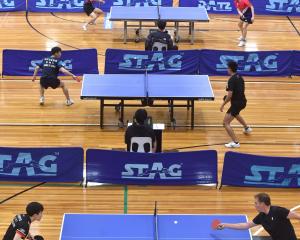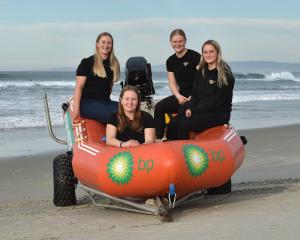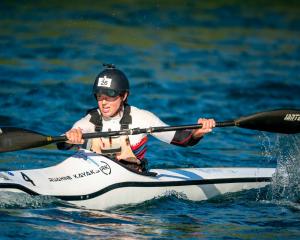The associate professor of sports medicine at the Otago Medical School has been appointed chairman of the seven-strong Wada specialist group that will draw up guidelines for the ''therapeutic use exemption for banned drugs''.
It is the first time a New Zealander has been appointed to this committee, and Gerrard is the first person from this country to be chairman of any Wada committee.
''It is a great honour,'' Gerrard said.
Gerrard has been involved in the war against drug cheats for the past 30 years.
He will report the decisions of his committee to Wada's medicine, science and research committee.
''It is an honour for the University of Otago as well,'' he said.
''Some of the information I use in my research and teaching at the medical school is gleaned from these meetings.''
He travels on Friday for the two-day meeting in Montreal.
Wada produces a list of prohibited drugs every year. Sometimes, Gerrard pointed out, athletes needed to use prohibited drugs for genuine medical reasons.
He is chairing the international professional group that will make guidelines for athletes needing to use prohibited substances for legitimate reasons.
''An insulin-dependent diabetic athlete would need to make application to the therapeutic use exemption committee and have their application to use insulin approved,'' he said.
Athletes could be sanctioned for having a positive test in or out of competition if they did not have an exemption.
''We are talking high stakes here, because the issues of anti-doping strategies in sport carry with them a huge responsibility, as was recently illustrated by the Lance Armstrong affair,'' Gerrard said.
''Our committee has an obligation to ensure that our athletes are given the best and the most updated information.''
Gerrard will report the findings to Drug Free Sport New Zealand and to the New Zealand Olympic Committee.
He and Associate Professor Chris Pemberton, from the Christchurch Heart Institute, have been awarded a significant Wada research grant to create a new test to detect erythropoietin (EPO) in athletes' blood samples.
EPO is a naturally-occurring hormone produced by the kidneys that stimulates the production of red blood cells.
The use of artificial EPO to enhance athletic performance began in the 1980s and was recently linked with drug scandals in professional cycling that exposed seven-time Tour de France winner Armstrong.
But it has been difficult to detect in the past. By timing the micro doses of EPO, athletes have been able to maximise the effects but avoid detection by routine blood analysis.
Synthetic EPO is indistinguishable from the natural protein. What was lacking was a test that detected a part of EPO that had not been previously measured.
Research by Pemberton and Gerrard has discovered part of the protein not thought to be present in blood.
''We are looking at a more sophisticated means of detecting the drug EPO in blood,'' Gerrard said. They are confident that their specific test will fill this gap.












